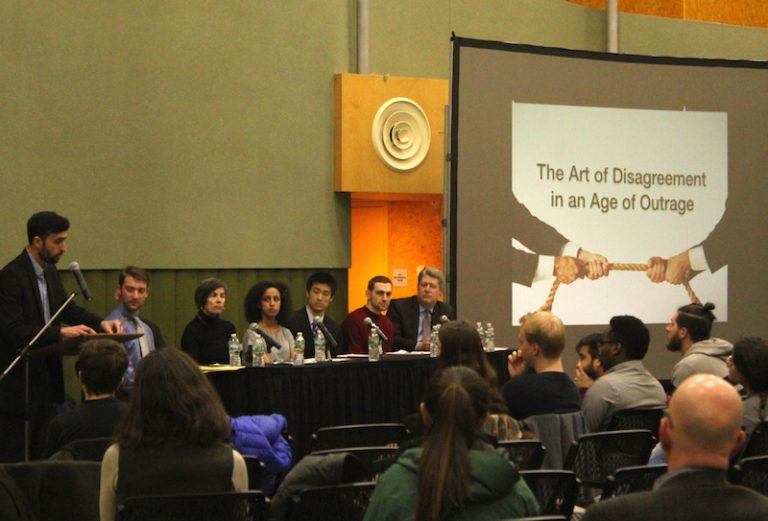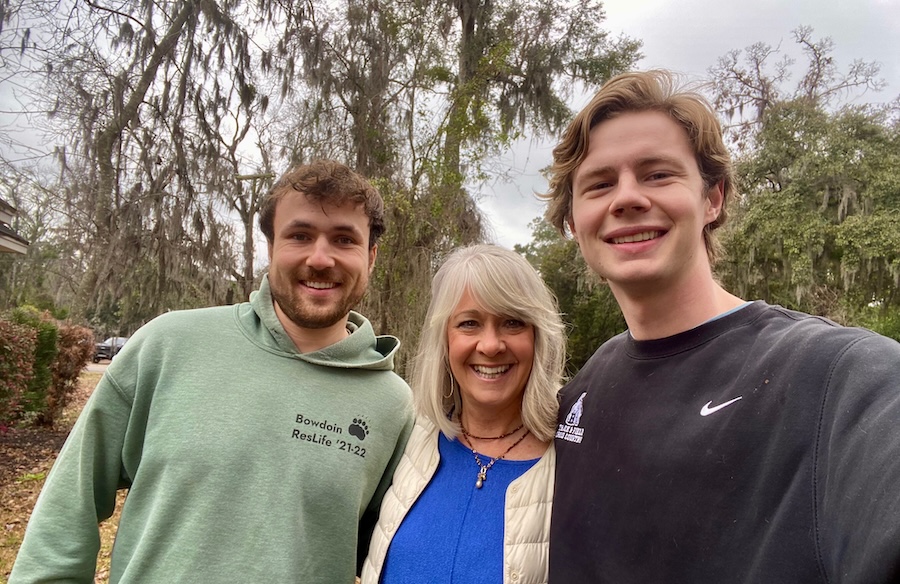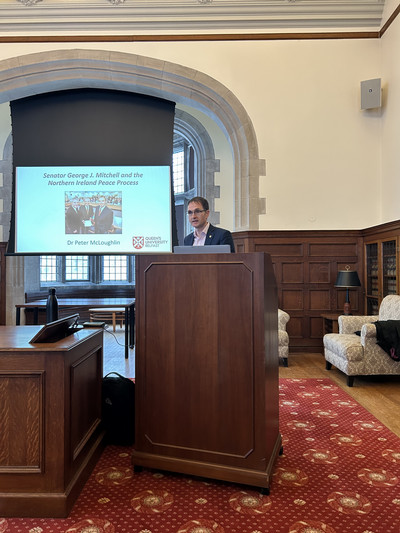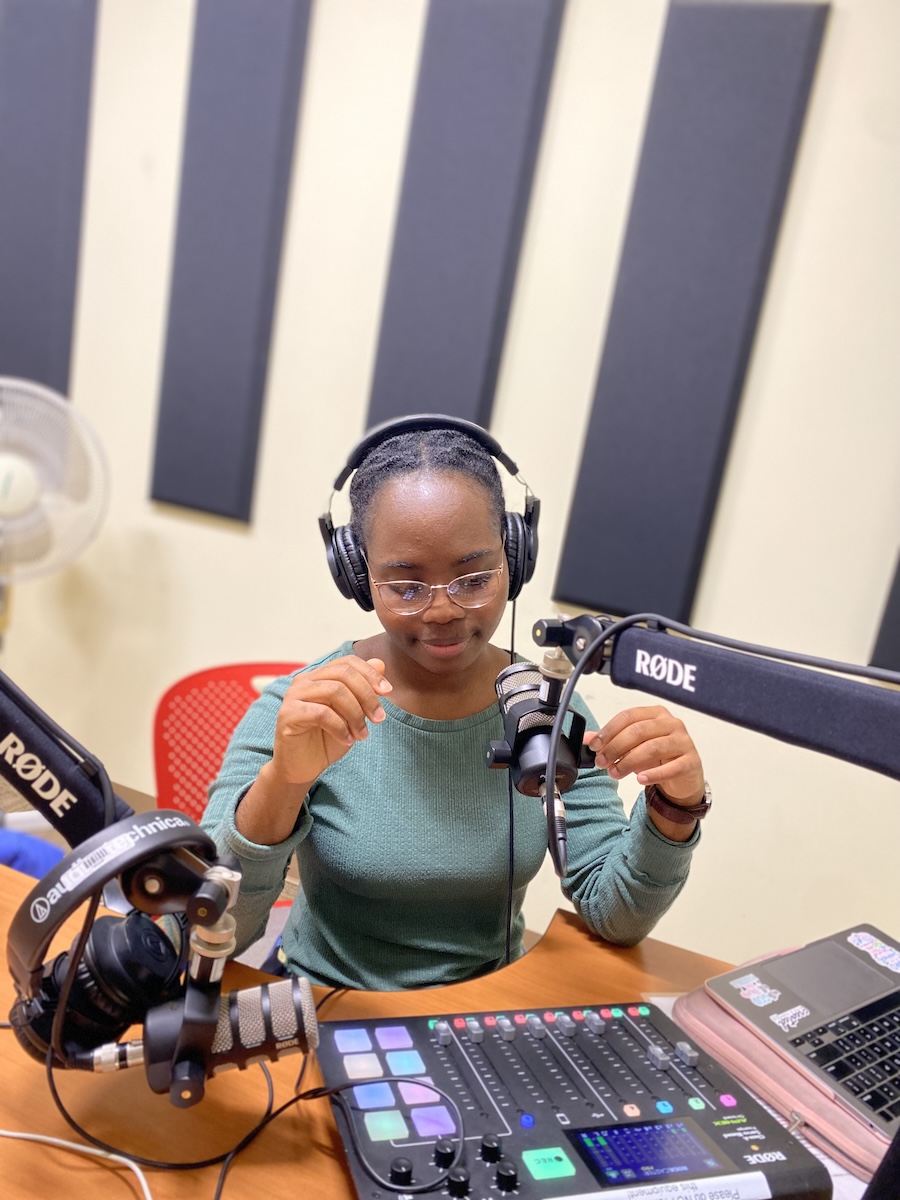Panel: How Do We Disagree in an 'Age of Outrage?'
By Philip Kiefer '18
The event was organized by several alumni who have developed a new social media tool to combat polarization in our society.
The goal of the talk, billed as “The Art of Disagreement in an Age of Outrage,” and sponsored by the Bowdoin Student Government, was to dig deeper into questions about productive disagreement raised by the nation’s political atmosphere.
The discussion was structured around three issues: the meaning of “intellectual humility;” growing polarization in American political culture; and the role of a liberal arts education in political discourse.
Such a platform is increasingly vital, said Professor of Government Michael Franz, in his introduction of the panel. “In the face of the torrent of data, voters might be forgiven for tuning out.” Somehow, he said, the citizens of a democracy need a way to hear one another over the noise.
Raffi Grinberg, a professor at Boston College and the co-director of OpenMind, a platform to “depolarize college campuses and classrooms,” opened the discussion. At OpenMind, he said, they start by counseling people to “start questioning everything we’re brought up with.” Intellectual humility, to him, means that “when we consider our deepest held beliefs, we’re willing to ask, where do they come from?”
Andrew Rudalevige, Bowdoin’s Thomas Bracket Reed Professor of Government, echoed the idea with a quote from a twentieth-century judicial philosophy: “The spirit of liberty is that which is not too sure that it is right.”
To that end, the panelists offered some concrete suggestions. Daniel Stone, assistant professor of economics, said that “while we might not be more polarized on issues, we are more polarized toward one another.” While voters might actually feel similarly about the issues, he said, they have a strong emotional reaction to hearing that someone is on “the other side.” Fixing polarization, then, could mean allowing ourselves to ask why someone believes something different. As Grinberg put it, “I think there’s one surefire way to shut down debate – to assume someone else’s motives.”
But the panelists recognized that the role of the college was not simply to assume best intentions in debates. According to Jennifer Scanlon, Bowdoin’s William R. Kenan Professor of Humanities in Gender, Sexuality, and Women’s Studies, the role of the academy is to “filter good scholarly work” – to use the experience of professors to help students sift thoughtful discourse from the rest.
“It’s not the same to entertain ideas and give them equal attention,” added Rudalevige. “Not all arguments are equal.”



